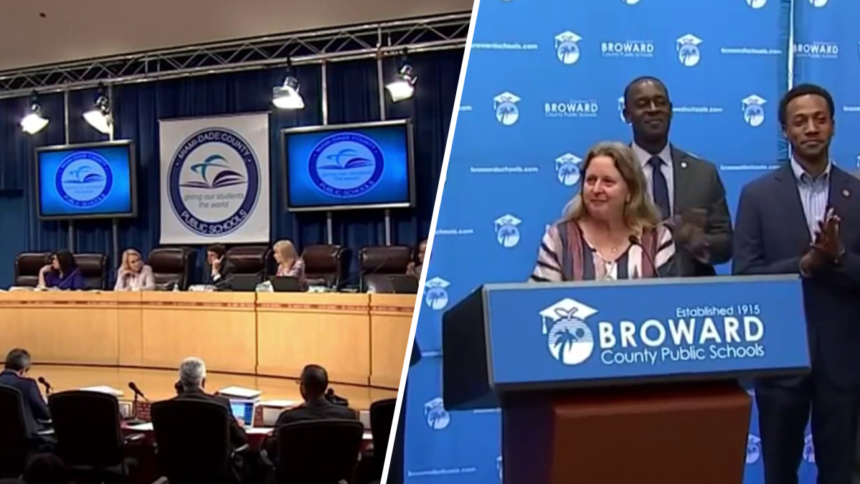It could be said that the trend toward politicizing school boards in Florida began during the COVID-19 pandemic.
Remember the anti-mask and pro-masking rallies? The formation of the Moms For Liberty group? Gov. Ron DeSantis breaking tradition and endorsing school board candidates?
Two years ago, DeSantis appointed five Republicans to the Broward County school board, replacing five Democrats. He also appointed two Republicans to the Miami-Dade County school board, to go along with his endorsements, a clear injection of partisan politics into formerly non-partisan positions.
“We are a partisan society that has become more partisan over time,” observed Charles Zelden, professor of history and politics at Nova Southeastern University.
“Generally speaking, school boards should be focused on local issues,” said Carlos Curbelo, a former Miami-Dade school board member and a former GOP congressman. “The conduct or the decisions made by school board members shouldn’t be influenced by major, national issues, by extreme ideologies, one way or the other.”
Curbelo said national culture war issues have seeped too far into local school policy debates.
In Broward, two of the governor’s appointees, Daniel Foganholi and Torey Alston, are running to keep their seats, and in Miami-Dade, DeSantis appointees Mary Blanco and Danny Espino are also running, with Espino facing no opposition. Right now, Florida school board elections are still officially non-partisan, but voters could change that status if they approve Amendment One in November.
Curbelo said partisanship creates a distraction.
“It divides communities in a way that ultimately, I think is detrimental, when we don’t have partisan identification on the ballot, people actually make more of an effort to look into the candidates, to try to figure out what they stand for,” Curbelo said. “But, once we put that D or that R next to the name, for a lot of voters it becomes automatic.”
“You want the focus on schools to be on good education, the problem is, we don’t agree as to what good education is anymore, and it has a partisan flavor to it,” Zelden said.
He’s not sure if turning school board races into D’s versus R’s will make a dramatic difference.
“It’s a complete reversal of the idea that you don’t want politics in the running of your school boards, you want the best possible people for the job, you don’t want ideology, you want competency, in terms of practicality, we’ve already been choosing people based on their politics anyhow,” Zelden said, pointing out that candidates signal which party they belong to by which issues they highlight.
“Parents rights” usually means Republican, while “freedom to read” or “raising teacher salaries” usually signals Democratic affiliation.
Florida’s secretary of education says the governor may have broken tradition, but his endorsements have been good for school districts.
“I think you’ve seen across the state where the governor has endorsed these candidates and they’ve gotten elected, those districts have really gotten to the business of educating kids and there’s been a lot less turmoil,” Manny Diaz Jr. said.











